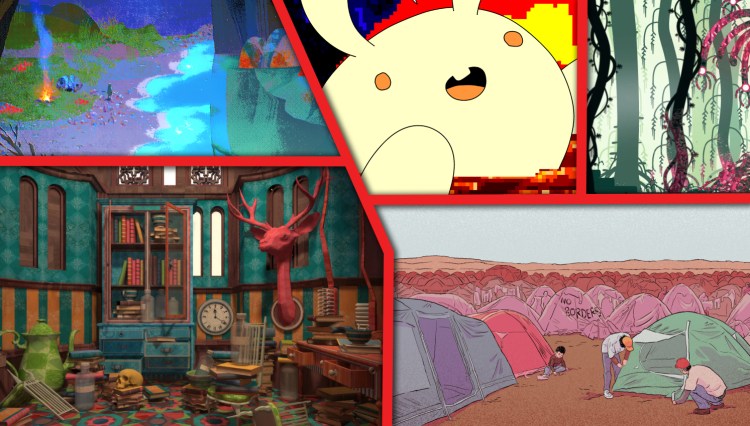It’s been a year and some change since I joined GamesBeat. Now that I’m leaving, I still don’t have a good definition for what indie is. If pressed, I would probably say that indie games take risks. They move you, and they make you think. They experiment with new art styles. They draw from myriad disciplines, like marine biology, architecture, and archaeology. Sometimes they take a mechanic or genre and drill-down to perfect it on a technical level. But all of these descriptions still fall short.
One thing I know for sure is that indies are vital. In places like Brazil, Iran, Ivory Coast, and South Africa, thriving communities are creating unique spaces for games. And they’re attracting publishers and platform-holders — business, in short, that will hopefully help everyone in the long run. I’m thankful that I’ve had the chance to meet and talk to dozens of developers from these communities, who often have to overcome structural and societal hurdles in addition to the endemic challenges of creative work, like crunch time.
It’s fantastic that indie games are getting recognition from triple-A studios like Electronic Arts and Square Enix and from platform holders like Microsoft with ID@Xbox and Nintendo with its Nindies on Switch. We saw the first African game arrive on a Nintendo platform, and we’ve seen titles tackle complex topics like mental health and anxiety.
But so many bold and delightfully weird titles are still flying under the radar. Over the last year, I’ve been excited to see more folks get into the publishing business — in addition to existing names like Devolver Digital, Raw Fury, and TinyBuild, companies like Viz Media and developers like 11 Bit Studios are also starting to publish games. I’m hopeful that this will expand the ecosystem so that games that are less mainstream have a chance to flourish and find their audiences.
June 5th: The AI Audit in NYC
Join us next week in NYC to engage with top executive leaders, delving into strategies for auditing AI models to ensure fairness, optimal performance, and ethical compliance across diverse organizations. Secure your attendance for this exclusive invite-only event.
These games are also finding physical homes as more events sprout up, enabling more people to play them. In addition to mainstays like IndieCade and industry-wide gatherings like the Game Developers Conference and the Electronic Entertainment Expo, more festivals are arriving on the scene to show off indie devs’ vast creativity. The Game Devs of Color Expo ran for the third year in a row this July, celebrating diverse creators. Also in New York, Play NYC ran its second show, featuring first-generation immigrant developers. And the A Maze festival in Berlin continues to push the envelope and bring in developers from all over.
Outside of the U.S. and Europe, exciting things are happening. The inaugural Africa Games Week is coming up in South Africa, Brazil’s Independent Games Festival got a grassroots counterpart in Glitch Mundo, and Tehran Game Convention had a successful second year. Conversations have also arisen around how events can be more inclusive for art games, providing safe spaces for unusual experiences that suffer when displayed on a typical show floor. These discussions are so important, as is the presence of events that center on independent creators.
It’s hard not to feel discouraged about the game industry when you hear about developers wrecking their health or horrifying accounts of sexual harassment and allegations of abuse. But we shouldn’t forget about the triumphs and persistence of folks who continue to make memorable and meaningful works of art. Indie games present a diversity of perspective and representation, and I can’t overstate how important this is to the game industry.
Thanks to the GamesBeat team for all their support and mentorship — Jason Wilson, Dean Takahashi, Mike Minotti, and Jeff Grubb. Thanks to VentureBeat for providing a platform for this column and to the VentureBeat team. And a big thank you to all the developers who’ve taken the time to tell me their stories over the last year.


